Our land our future
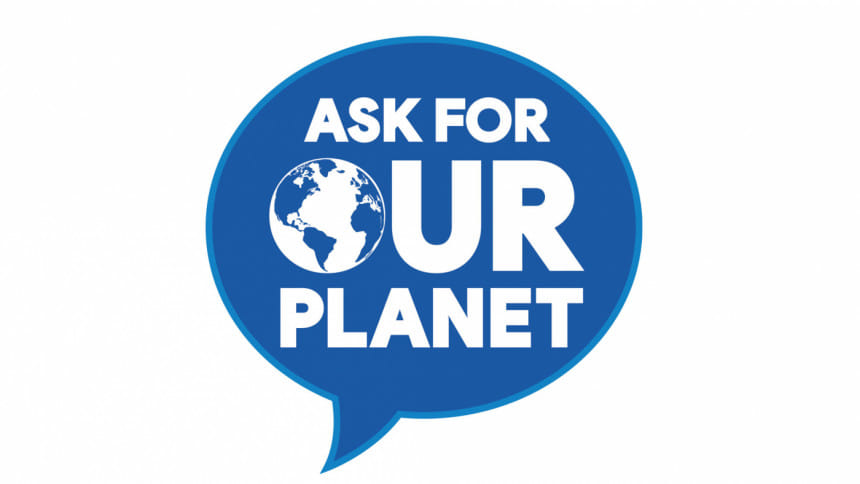
'Ask For Our Planet' is a collaboration between The Daily Star and the United Nations Development Programme in Bangladesh, launched for the World Environment Day 2024. Our goal is to connect our readers with national climate champions, allowing them to ask questions about pressing environmental issues such as pollution, climate change, waste management, declining groundwater levels, and sustainability. We believe that by obtaining and acting on these answers, we can make a significant contribution to mitigating or even reversing the adverse effects of climate change.
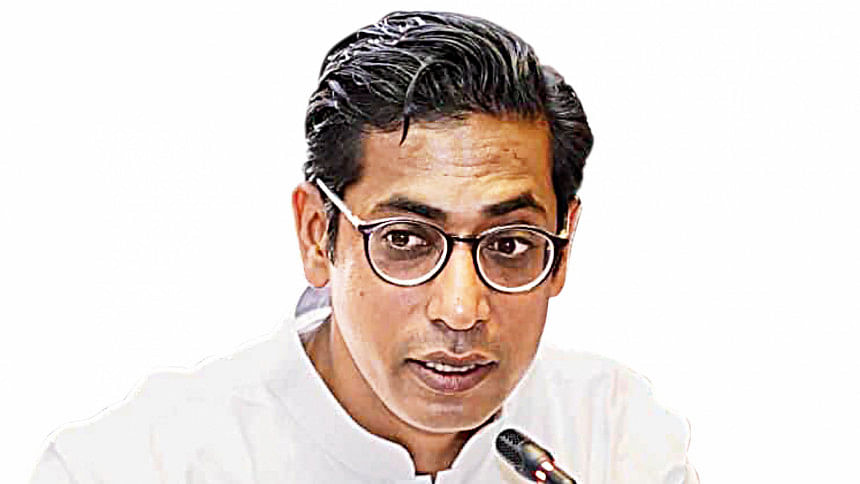
"Citizen action, collaboration vital for compliance"
Why has the government's initiative to shut down illegal brick kilns become ineffective?
Asked by: Md Afzal Hossain Nayeem (Mohammadpur, Dhaka)
Over the years, multiple governments have taken initiatives to have compliance with Bangla Brick manufacturing to the extent of threatening to shut down operations, demolish unauthorised units or bar the renewal of trade licenses. However, nothing seems to deter the legally and illegally operated brick manufacturers from adopting eco-friendly alternatives.
It's merely a matter of willingness. Alternative methods such as Fixed Chimney Klin, Zigzag Klin, Vertical Shaft Brick Klin or Hybrid Hoffman Klin are all considered Green technology. Concrete bricks or Hollow bricks are also eco-friendly. Furthermore, former finance minister late Abul Mal Abdul Muhit initiated "Green Financing" particularly keeping this technology in mind. However, it was not successful in bringing the desired outcome.
Imminent action should be taken to make the industry compliant and total shut down of those who don't.
As a volunteer, what can we do to reduce plastic bag usage in markets where people prefer them due to lower cost? Can Bangladesh implement a plastic ban like India, and how can we raise awareness as citizens?
Asked by: S. M. M. Musabbir Uddin (Segunbagicha, Dhaka)
Despite numerous initiatives by civil society, environmentalists, city planners, legislators and others, the use of single-use plastic continues. Sufficient awareness programmes have been initiated to use alternative products. Unfortunately, these measures have not delivered the desired outcome.
We should completely ban the manufacturing and use of single-use plastic in Bangladesh. We have cheap alternatives in place. Government bodies like city corporations, businesses and other stakeholders should engage in imposing strict guidelines to this end. There should also be a stringent penalty for non-compliance. Simultaneously, citizen action is required to boycott single-use plastic.
Despite creating environmental policies since the 1980s and publishing the Solid Waste Management Rules 2021, why have these rules not been implemented effectively by 2024?
Asked by: Jerin Sultana Lalkhan bazar, Chattogram
Unfortunately, these ordinances are not properly coordinated. The mismanagement is caused by our lack of oversight. I'm a firm believer in citizen action and collaboration. Stakeholders should seek an action plan and strict deadlines to ensure compliance on legislative and executive levels. Everyone, including individuals, businesses and other stakeholders should be held accountable for their actions.
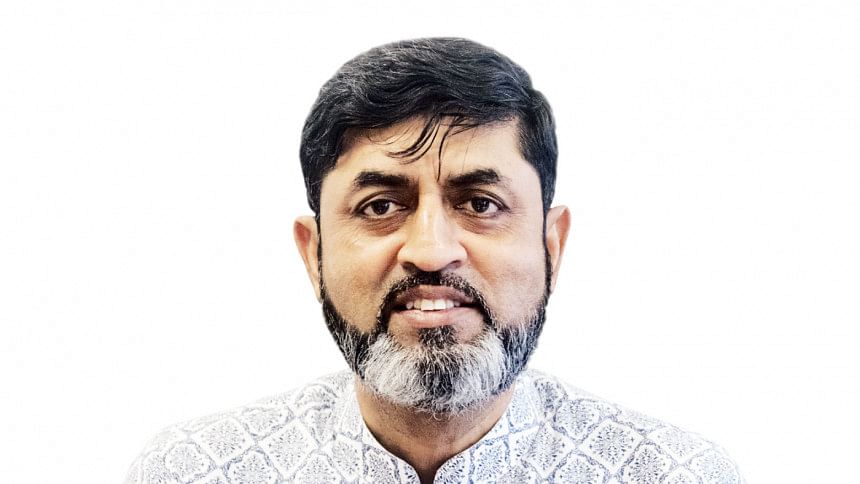
"We need to coexist with nature"
As an architect, how do you think sustainable infrastructure design principles can be integrated into Dhaka's urban planning and construction projects?
Asked by: Mahzuza Maria Biva (Bashabo, Dhaka)
The answer to this question is embedded importantly into the very definition of sustainability defined by SDG 11. Primarily, all urban development projects and initiatives must aim towards 'equity', to confirm the inclusivity in terms of its accommodation, use and management.
Secondly, the goal to be "economic" has to be achieved in their implementation. Being economic implies ensuring the adaptation of local knowledge, technology, and available materials and techniques.
Last but not least, the environmental concerns and their impact must be addressed by urban projects during their very initiation phase and continued throughout the implementation and management phases. Environmental issues concern human beings and biodiversity equally, so our responses need to be from a holistic perspective.
What role can green building technologies and practices play in reducing the carbon footprint of Dhaka's environment while improving the city's overall livability?
Asked by: Ryad Ahmed (Dortmund, Germany)
Dhaka is one of the most densely populated cities in the world. All sectors and infrastructures will benefit if we adopt "nature-based" solutions considering the local climate and environment. These solutions can be enforced through incentive-based encouragement programmes for land owners, developers, and government agencies.
We also need to make efforts to "coexist" with nature, through our compassion and empathy towards our surroundings. Blindly adopting foreign templates of heavily energy-dependent structures should be discouraged to reverse the "heat island" the urban residents find themselves in. Simultaneously, Bangladesh National Building Code should be thoroughly updated.
How can the preservation and restoration of Dhaka's existing greenery, water bodies, and natural habitats be better integrated into urban development plans?
Asked by: Jayedul Hassan (Osaka University, Japan)
Every city must have its 'Urban Greenery Policy', a customized implementation approach based on the area's soil and climate conditions, and historical data on vegetation. Instead of allocating a budget for celebrations of target fulfilment, we need to allocate a budget for nourishing, pruning and maintaining plants and vegetation through professional consultation and proper training.
Protection, monitoring and restoration initiatives are our current priority. We also need to be sensitive to the biodiversity of specific areas, by fostering local plant breeds and knowledge.
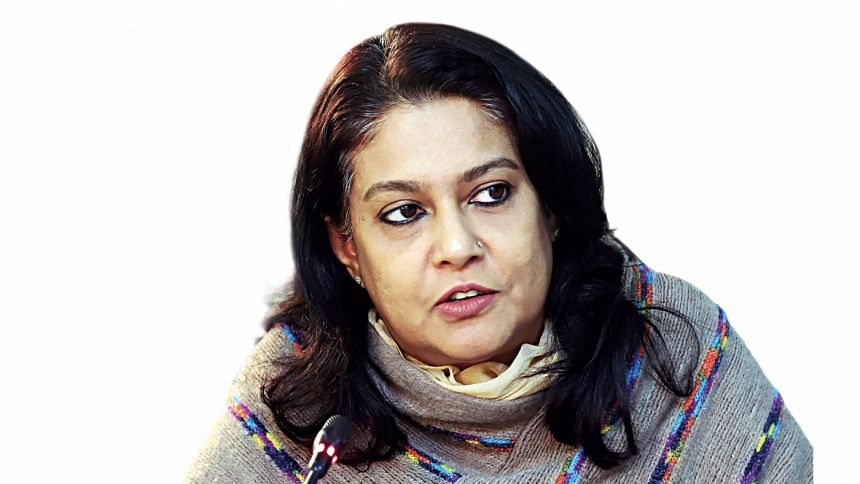
"NGOs, communities must complement each other"
What strategies can be implemented to empower grassroots stakeholders in rural communities to actively participate in environmental and conservation efforts?
Asked by: K.M. Nayeem Farhan (Shahzadpur Gulshan, Dhaka)
The environmental laws in the country have clear provisions for public consultations before Environmental Impact Assessment (EIA) reports of industries or projects that fall within the red category are approved. If complaints are registered, the Director General of the Department of Environment (DoE) is under a legal obligation to take measures required to redress the community grievances. These measures also include holding public hearings on such issues. Communities need to be made aware of their rights to participate, receive information and redressal under national laws. Civil society actors can invest in empowering the communities on a national level with technical knowledge, connections, capacity building, and facilitating their access to redressal mechanisms for a national-level development process.
What role can civil society organizations, such as NGOs and community groups, play in promoting environmental justice and protecting marginalized communities?
Asked by: Arman Zaman Chowdhury (Shantinagar, Dhaka)
The NGOs and community groups can complement one another in their efforts to promote environmental justice. NGOs can work with communities to fact-check information regarding development projects that might be exploitative and guide community members in collecting evidence and monitoring grassroots-level conditions. The NGOs can effectively engage with the media. NGOs also can draw national attention to local issues by collaborating with community groups that bear the brunt of environmental injustices.
What are some successful examples of grassroots-led environmental initiatives in developing countries? What can we learn from them?
Asked by: Amarah Gilani (Mirpur DOHS, Dhaka)
Countering the false solutions by the profit-driven sectors, the grass-root level successes on environmental matters are aplenty. Starting from the preservation of seeds and defending natural and safe agriculture to innovating integrated water resource management models with different high-efficiency, low-cost technologies to counter water scarcity issues in disaster-prone areas. When the government justifies tree felling on the grounds of funding the beneficiaries of its social forestry program, we see rickshaw pullers and school teachers setting inspiring examples of tree plantation and biodiversity conservation. To address the negative impacts of climate change, people are converting their water-logged lands into vegetable farms, accessing potable water through online payment, engaging in inventing seeds that are natural disaster-prone and many such initiatives.
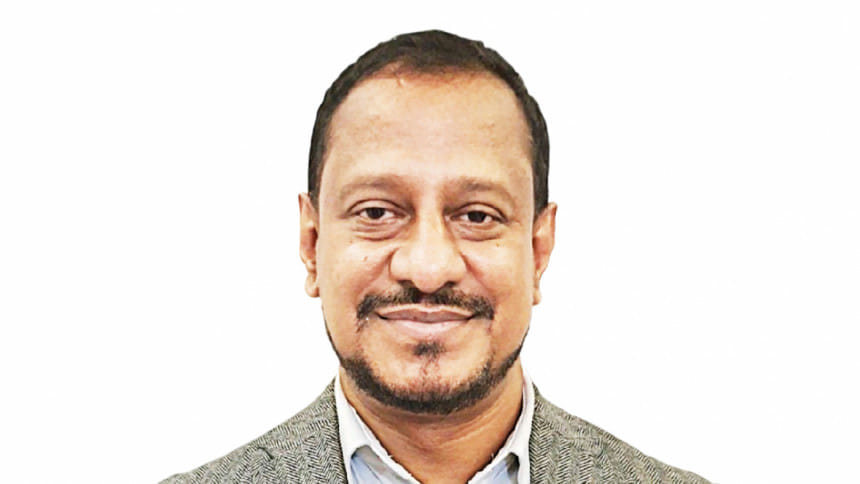
"Multi-stakeholder dialogues beneficial for resource mobilization"
How can UNDP support Bangladesh in effectively implementing international environmental agreements at the local level?
Asked by: Samira Sattar (Khilgaon, Dhaka)
The UNDP can effectively support Bangladesh in implementing international environmental agreements such as the UNFCCC, UNCBD, UNCDD, and Montreal Protocol through a multi-faceted strategy. This includes capacity-building programmes to enhance understanding among stakeholders, and policy support to local governments so that their policies align with international standards. Additionally, facilitating stakeholder engagement through multi-stakeholder dialogues and partnerships can foster collaboration and resource mobilization. The UNDP can also assist in mobilizing financial and technical resources for local projects , and promoting knowledge sharing and technology transfer.
How can UNDP ensure full inclusion of marginalized populations, particularly people with disabilities, in its 'Climate Promise' Programme?
Asked by: Jahidul Islam (Mirpur, Dhaka)
The UNDP can implement several strategic actions in the Climate Promise programme to include people with disabilities. These include integrating disability perspectives into all climate policies, consulting with disability organizations, and ensuring their representation in policy-making processes. Nationally Determined Contributions (NDCs) and National Adaptation Plans should explicitly address the needs of people with disabilities. The upcoming "circular economic strategy", Net Zero Strategy, NDC investment plan should be also inclusive.
Targeted programmes should focus on disability-inclusive disaster risk reduction (DRR) strategies and adaptive infrastructure that is accessible to people with disabilities. Partnerships with Disabled People's Organizations (DPOs) and collaboration with international and regional bodies are crucial for sharing best practices.
Are there any modern and readily available solutions to combat the deteriorating air quality in Dhaka?
Asked by: S.M.M Musabbir Uddin (Segunbagicha, Dhaka)
Key strategies include enforcing stricter emission standards for vehicles and industries, transitioning to Euro VI standards, and phasing out obsolete brick kilns. Promoting low-emission zones and renewable energy sources such as solar and wind power are also crucial. Investing in electric and hybrid buses and expanding public transit infrastructure can significantly reduce private vehicle use.
Additionally, deploying air quality monitoring systems, encouraging emission control technologies like catalytic converters, and setting up air purifying towers in highly polluted zones and industrial scrubbers can be helpful. Urban planning should emphasize green infrastructure projects, along with zoning regulations to separate industrial and residential areas, community engagement and awareness-raising.
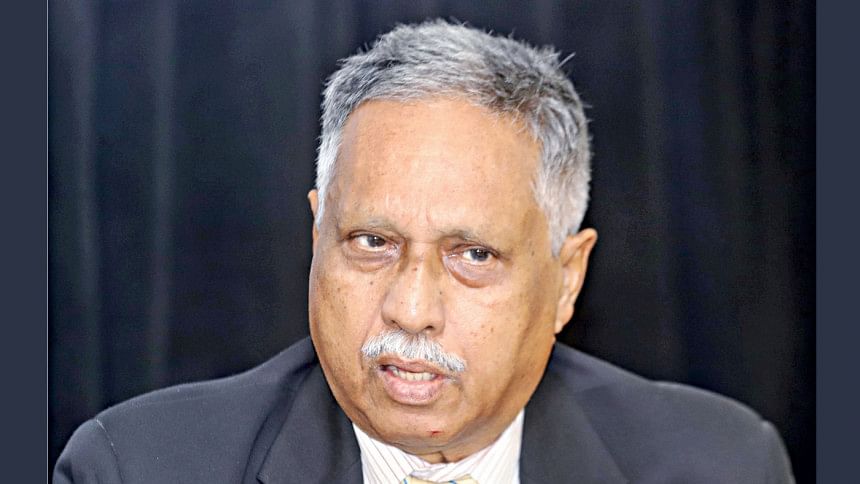
'We should push for renewables'
"Ask For Our Planet" is a collaboration between The Daily Star and the UNDP in Bangladesh, launched for Environment Day 2024. Our goal is to connect readers with national climate champions, allowing them to ask questions about pressing environmental issues such as pollution, climate change, waste management, declining groundwater levels, and sustainability. Here, we connect readers with Professor Emeritus of BRAC University and water resource and climate change specialist Dr Ainun Nishat.
Question: What practical and effective measures can be implemented to mitigate the effects of urban heat islands and improve thermal comfort for residents in Dhaka, considering the increasing frequency and intensity of heat waves?
Asked by: Mehnaz Lameesha Rahman (Dhaka University)
Ainun Nishat: We have to understand the intensity and frequency of heatwaves in the coming years. To improve thermal comfort, the best possible way would be massive tree plantation and afforestation. If we can cover the whole country with large trees, which might take a few years, that is the best way to make all the urban areas much cooler. The heatwaves are coming from possibly Western Asia and this is a result of changes in global air circulation patterns. As such, the circulation of atmospheric air is going to change and more hot days will be coming.
What role do you envision renewable energy sources playing in Bangladesh's future, and what steps should the city take to transition towards more sustainable energy solutions?
Asked by: Nawwar Fatima Procheta (Mirpur Kalshi, Dhaka)
Ainun Nishat: Total energy production in Bangladesh per capita is still low. Therefore, mitigation should not be a target for Bangladesh. However, we should push for renewable energy by utilising the technologies that are in practice, like solar energy, and bringing in the new technologies that are emerging. One is wind energy, and technology has improved -- the wind we have should be able to provide sufficient energy. Hydrogen technology is also coming up, and energy saving should be aimed at.
Question: How can we restore the polluted Buriganga, especially considering the reduced river transportation due to the construction of the Padma Bridge? What strategies can be implemented to clean up the Buriganga and mitigate pollution effectively?
Asked By: SMM Musabbir Uddin (Segunbagicha, Dhaka)
Ainun Nishat: It is possible to restore the water quality of Buriganga and all the rivers next to major cities. We have the necessary laws and permission in our constitution. The government must take strong measures to control pollution by enforcing the 1995 Act or the 1997 Regulation. The government has sufficient instruments to control river pollution. Many of the major rivers in the industrial belts of major cities, like London, were highly polluted. Now, the Thames is clean. If they can do it, we should be able to clean the Buriganga and our river systems as well.

 For all latest news, follow The Daily Star's Google News channel.
For all latest news, follow The Daily Star's Google News channel. 



Comments